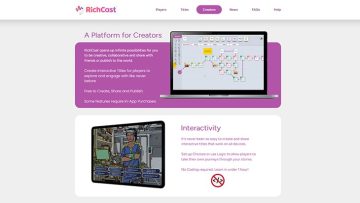This start-up guide is based on the experience of setting up the original Maths Arcade at the University of Greenwich and focuses on practicalities.
Aims and objectives
Aims:
a) To help support struggling learners
b) To stretch more confident learners
c) To provide an opportunity for staff and students to interact together in a social and mathematical environment.
Objectives:
a) Provide a weekly drop in session with staff available to provide tutorial support
b) Provide a wide variety of strategy games and puzzles for students to play with each other and staff
c) Provide a weekly puzzle to stretch the most confident and to run this as a termly competition.
Funding and purchasing of equipment
The initial University grant in 2010 was for £1,650. The appendix to this booklet contains a list of all the games and puzzles that were bought initially at Greenwich as well as others that have since been purchased or recommended. A mobile, lockable, storage cupboard was also purchased from this funding to store and transport the games.
Rooming
Discussions on storing the cupboard and equipment, and the timetabling or rooming of sessions need to be carried out as early as possible, depending on your situation. At Greenwich we were initially allocated a classroom seating 56. In 2011 we were allocated a larger classroom with plenty of circulation space and comfortable seating in the area outside to enable some of the games to be played in a more relaxed environment. It is necessary for students to be able to sit around tables and play the games; the Maths Arcade would not work in a fixed-seat lecture theatre.
Staffing
It is important to get the agreement and commitment of several members of staff and PhD students to turn up each week. One of the main benefits of running the Arcade is to enable staff-student interaction. Running a training workshop to show staff and PhD tutors the importance and advantage of attending and enabling them to try out some of the games is a good idea before the sessions actually start.
The Maths Arcade provides a good way to get to know a reasonable number of students well in a short space of time so staff could be encouraged to use this as one of their office hours or as a designated time and place to meet project students.
Advertising
Without promoting sessions well students are unlikely to turn up. Early promotion in the induction week works best and continued mentions in lectures will encourage new members each week. Incorporating some of the Maths Arcade games and puzzles into the start of term induction activities is a good strategy. If you organise some sort of peer mentoring scheme encourage mentors to arrange to meet their mentees there.
Weekly Operation
This needs commitment of a couple of members of staff to be there each week even if others attend on a rota basis. You could provide weekly puzzles, perhaps as part of a competition. There are many sources for puzzles including the Institute of Mathematics and its Applications website and books by authors such as Henry Dudeney, Sam Lloyd, Martin Gardner and Ian Stewart.
It is useful to keep a list of those students who attend for evaluation purposes.
Evaluating and feedback
It is useful to obtain written feedback on the Maths Arcade from those attending and not attending the sessions. This can be done as a questionnaire or linked into existing Personal Development Portfolio (PDP) or similar scheme. In the first year at Greenwich the most negative feedback was that there were not enough sessions, these were not long enough and they might be better taking place after rather than before lectures. Some students said they did not know what it was and were really surprised to find they enjoyed it when they did attend and wished that it could have been advertised more. There were no negatives comments concerning the content.



